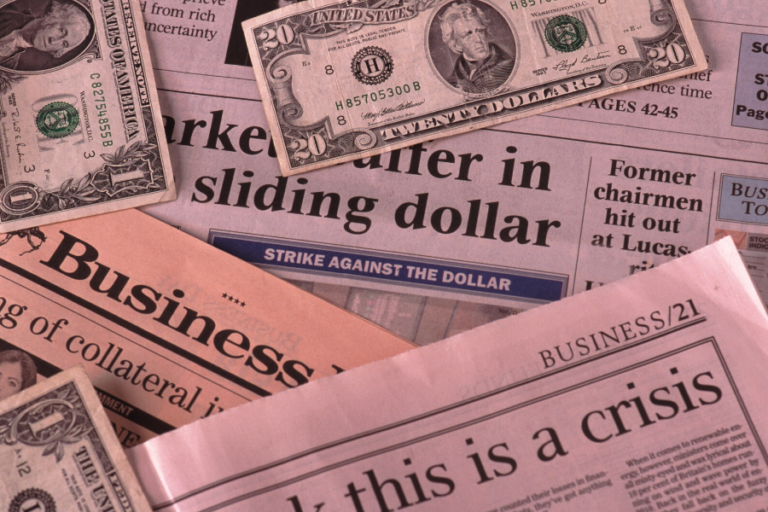This post may contain affiliate links. Please read my disclosure for more info.
I know it’s hard to think about saving money during troubling times. I have been there and know how difficult it is to save money even during normal times. But it is critical you find a way to build your savings for those rainy days. Having the available funds will prevent you from accruing more debt during those times. So, have you ever wandered what are some money saving tips you could start today, right now?
Before we jump into saving money, let’s not forget about paying off debt. This will allow you to save even more money for those critical times. Having this stash of cash reserves will allow you to attack those emergencies and large expenses head-on without missing a beat. Then work on addressing the larger issue of saving at least 3-6 months of living expenses in case you are faced with unemployment or an unexpected illness down the road. Here are some easy money saving tips you can do today:
Create a realistic budget
The smartest way to save money is by creating a realistic budget. It may feel painstakingly difficult at first but it will be worth your time. This will help determine where you can cut back and more importantly decide how much you can put towards your savings. So take just 15 minutes out of your day and get to work on your budget.
First, figure out how much income you have coming in. List every single source of income. Then, make a detailed list of all your fixed and variable expenses. Your fixed expenses include regular recurring bills which rarely change like your mortgage/ rent, utilities and insurance. Variable expenses change from month to month. They include things like your groceries, gas, eating out and entertainment.
Pay yourself first
The best strategy I have had success with is paying myself first. This just means you allot a certain amount from your paycheck to your savings before you pay any bills or anybody. This amount is completely up to you. It may be $20, $100 or even 10% of your paycheck which goes directly to your savings.
Most people find this strategy works very quickly and they usually don’t miss the money because it is automatically deducted from their check and deposited into a savings account. For example, if you automatically saved $25 a week this turns into $1300 a year. Now just think if you saved this much from age 25 to 65, this would be $52,000 saved and that doesn’t include added interest!
Look to refinance your mortgage
The Federal Reserve will drop or raise the interest rates as a way to boost or halt the economy. It may be worth checking to see if refinancing your mortgage is best for your situation. Before making any decision on refinancing your home or even your car, do the research in order to make a well – thought- out decision.
First, consider why you should refinance your home loan. There are a number of reasons why one would want to refinance their home loan. First, refinancing may reduce your monthly payments. Also, there may be an option to cash out refinance and use the equity from your home and possibly get a lower interest rate as well. Paying off the loan faster by refinancing from a 30-year mortgage to a 15- year mortgage allows you to pay less towards interest. To gain a better understanding of how much you could save by refinancing your home check out this calculator by Nerdwallet.
Eat at home more
Do you eat out a lot or do you cook most of your meals at home? According to the Bureau of Labor Statistics, the average American household spends nearly $3300 dining out each year. That comes to $275 each month! By saving this amount of money each month you could see your savings add up pretty quickly.
So, changing how you eat is another money saving tip. And one of the easiest ways to save money is by cutting back on eating out since the cost of dining out rises faster than buying groceries. You don’t have to stop eating out altogether, but just lessen the amount of times you eat out. As you make these small changes, your savings will pile up.
Change your cell phone plan
Have you ever opened your cell phone bill and thought, “I am getting a good deal”. Probably not. But it is possible to cut down on the amount you pay each month by making some changes. Here are some easy changes you could make:
– Here’s one way to save on your cell phone bill by doing very little. Choose to make automatic payments which can knock off $5- $10 each month on your bill. Also some wireless carriers offer a discount per line, so a family of four could possibly save up to $40 on their cell phone bill per month. This may not seem like a huge amount of money saved. But if you could save this amount by just going paperless and having your payment drafted automatically, why wouldn’t you?
– You could also decrease the amount you pay by switching to a prepaid plan. With prepaid plans you pay ahead of time for talk, text and data instead of waiting on the bill to arrive in the mail. Most wireless carriers offer these types of plans. Prepaid plans not only lower costs, but may also offer more flexibility. Prepaid plans also don’t charge you all the taxes and fees like on a traditional cell phone plan. Therefore, it’s possible to save up to $240 a year by making a switch to a prepaid plan.
– Change or remove your cellphone insurance. Dropping the insurance on a brand new phone may be risky but may make sense if you have an older device. Usually the deductible starts at $100 up to $300 and may not be worth it in the end. Removing the insurance altogether may save you $80 to $180 a year of course depending on the carrier and type of coverage you have.
Essential tips
I hope these money saving tips will help you see there are ways in which you can save money during troubling times. While these money saving tips may require some sacrifices they are all doable. More important, keep saving beyond the hard times so you will be more than ready for the next challenge.







